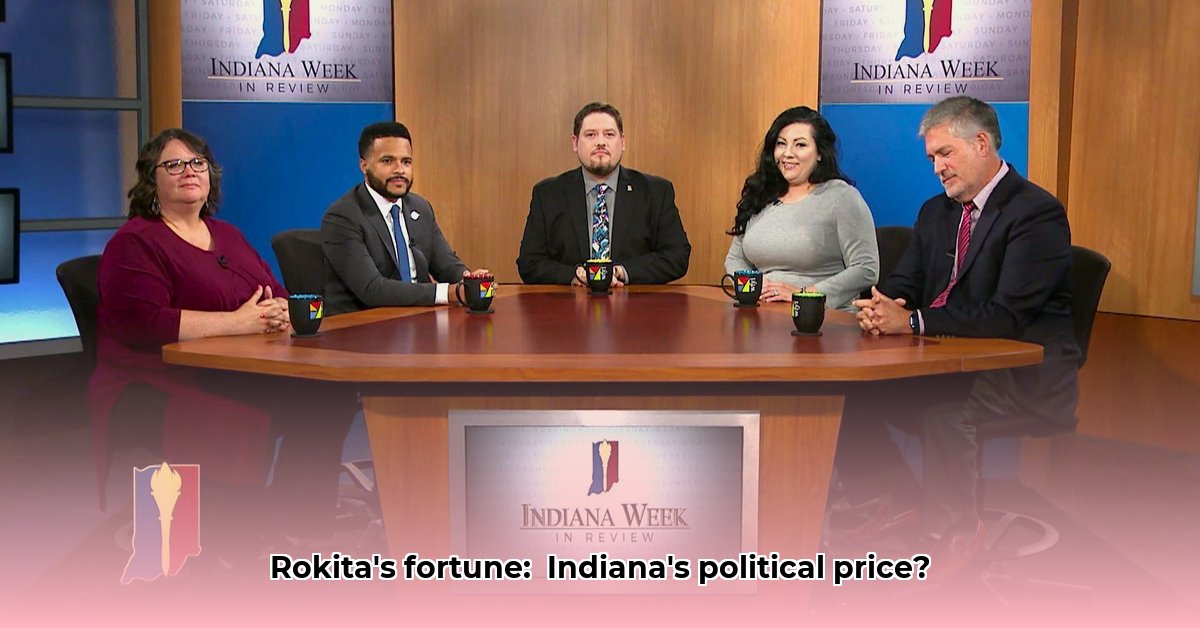
Self-Funded Campaigns and the Indiana Political Landscape
Indiana's political landscape is increasingly shaped by self-funded campaigns, raising concerns about fairness and equal access to political power. This trend, exemplified by prominent figures like Attorney General Todd Rokita, necessitates a closer examination of the implications of substantial personal wealth in state elections. This analysis explores the extent of self-funding, its impact on campaign dynamics, and potential reforms to promote greater equity.
The Financial Landscape of Indiana Politics
Self-funded campaigns are becoming increasingly prevalent in Indiana, particularly amongst high-profile candidates. Candidates like Mike Braun and Trey Hollingsworth previously demonstrated the significant advantage conferred by substantial personal wealth, allowing for extensive early campaigning and media outreach. This raises questions about whether such self-funding creates an uneven playing field, potentially disadvantaging candidates reliant on traditional fundraising methods. How does this impact voter perception and influence policy outcomes?
Todd Rokita's Wealth and Campaign Strategy
While the precise net worth of Attorney General Todd Rokita is not readily available in this analysis, numerous financial disclosure reports need to be analyzed. Regardless, his substantial personal wealth grants him significant leeway in campaign strategy. He isn't as constrained by fundraising needs, potentially allowing him greater flexibility in messaging and outreach. However, this independence also raises questions: Does this financial freedom translate into greater policy influence, or does it create a level of detachment from the concerns of average Hoosiers? Further investigation is required.
The Broader Impact of Self-Funding
The consequences of self-funded campaigns extend beyond mere campaign spending. Candidates with substantial personal resources can dominate the media landscape, potentially overshadowing policy debates and shaping public perception before opponents have a chance to establish themselves. While a direct causal link between self-funding and specific policy outcomes remains difficult to definitively prove, the sheer ability to control the narrative raises concerns about potential undue influence. Some argue self-funding allows for greater independence from donor influence. That’s true, but the question remains: Is the independence from donors replacing that with independence from constituents?
Indiana's Political Framework and Campaign Finance Laws
Indiana's current campaign finance laws and political structure exacerbate the impact of self-funded campaigns. Relatively lower costs for statewide races, compared to some other states, combined with less stringent campaign finance regulations, create an environment where wealthy candidates can readily dominate. The winner-take-all nature of Indiana's primaries further magnifies the advantage of a strong early start, often fueled by personal wealth. Therefore, a review of Indiana's campaign finance regulations is crucial. Do these laws sufficiently safeguard the fairness and integrity of the electoral process?
Towards a More Equitable System: Potential Solutions
Addressing the challenges posed by self-funded campaigns requires a multi-pronged approach. The following strategies merit serious consideration:
- Comprehensive Campaign Finance Reform: Implementing stricter spending limits, including on personal contributions, could help level the playing field.
- Enhanced Transparency Measures: Increasing public access to detailed campaign finance data could help counteract potential abuses and promote accountability.
- Public Financing Options: Exploring public financing mechanisms could reduce candidates' reliance on personal or large-donor funding, promoting broader participation.
These solutions are not mutually exclusive and their efficacy will depend on the specific implementation details. How can we balance a candidate's right to use their own resources for their campaign with the need to maintain a fair and equitable political process?
Conclusion: The Path Forward
The rising influence of self-funded campaigns in Indiana highlights a critical challenge to the fairness and transparency of the state's political system. While the relationship between personal wealth and policy outcomes needs further investigation, the potential for disproportionate influence is undeniable. By exploring campaign finance reform, enhancing transparency, and possibly introducing public financing options, Indiana can strive towards a more democratic and representative political landscape. The example of Todd Rokita, while requiring more specific data analysis, prompts this critical discussion. Strengthening campaign finance regulations and promoting open access to financial information is vital for ensuring fair and equitable elections. Without additional reform, the trend of self-funding in Indiana may further solidify the advantages of the wealthy few.